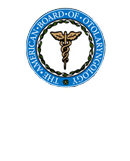Can Spring Allergies Turn Into Sinusitis?
Spring brings warmer weather, blooming flowers, and, for many people, seasonal allergies. While allergies are common this time of year, some individuals notice their symptoms worsen or change over time. It’s not uncommon for spring allergies to lead to sinusitis, but how do you know when it’s time to seek professional sinus care? Understanding the difference between allergies and sinus infections can help you decide when to take the next step toward relief.
Allergies vs. Sinusitis: What’s the Difference?
Seasonal allergies, often triggered by pollen from trees, grasses, and flowers, cause the immune system to overreact. This reaction releases histamines, leading to symptoms like:
- Sneezing
- Runny or stuffy nose
- Itchy eyes, nose, or throat
- Postnasal drip
- Watery eyes
Allergies typically cause discomfort but don’t involve infection. The mucus is usually thin and clear, and while you may feel tired or have trouble breathing through your nose, fever and facial pain are rare.
Sinusitis, on the other hand, occurs when your sinuses become inflamed and infected. This can happen after a cold, but for many people, it’s triggered by ongoing allergy symptoms. Allergic inflammation can block sinus drainage, trapping mucus and allowing bacteria to grow. Symptoms of sinusitis include:
- Thick, yellow or green mucus
- Facial pressure or pain, especially around the cheeks and forehead
- Nasal congestion
- Reduced sense of smell or taste
- Headache
- Fever
- Fatigue
Sinusitis can be acute (lasting a few weeks) or chronic (lasting more than 12 weeks). If left untreated, chronic sinusitis can cause more serious health issues.
How Allergies Can Lead to Sinusitis
Seasonal allergies cause the nasal passages and sinuses to swell. When this happens, normal mucus drainage slows down or stops completely. Stagnant mucus creates the perfect environment for bacteria to grow, which can lead to infection. If you have a history of sinus infections, spring allergies can make you more prone to recurring sinusitis.
People with nasal polyps, a deviated septum, or other structural issues are even more vulnerable. These factors can worsen blockages, leading to chronic sinus problems.
When to Seek Sinusitis Treatment
If your allergy symptoms change or worsen—especially if you develop facial pain, thick nasal discharge, or a fever—it’s time to consider sinusitis treatment. Over-the-counter allergy medications like antihistamines and decongestants may offer short-term relief, but they won’t resolve an infection.
At New York Sinusitis Treatment, we offer advanced diagnostic tools to determine whether you’re dealing with allergies, sinusitis, or both. Dr. Greg Levitin and our team provide personalized treatment options that may include:
- Nasal sprays to reduce inflammation
- Antibiotics to fight infection
- Sinus irrigation to promote drainage
- Minimally invasive procedures like balloon sinuplasty for chronic cases
Find Relief This Spring
Don’t let seasonal allergies develop into something more serious. If you’re experiencing signs of sinusitis, contact New York Sinusitis Treatment today to schedule a consultation and exam with Dr. Levitin. Early treatment can prevent chronic issues and help you breathe easier all season long.













